Fratelli Cosulich Inks Charter Deal for LNG Bunkering Vessel
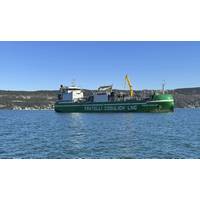
Italian shipowner Fratelli Cosulich and PETCO Trading Labuan Company Limited (PTLCL), a trading arm of Malaysian energy company Petronas, have signed a two-year charter agreement for Paolina Cosulich LNG bunker barge.Operating under PTLCL, a global energy solutions provider in key bunker hubs with network in Southeast Asia, Japan, Middle East and South Africa, Paolina Cosulich will cater to the increasing demand for LNG as bunker fuel in the Straits.Fratelli Cosulich’s latest LNG bunger barge features a cargo capacity of 8,200 cubic meters of LNG…
NYK Signs Multi-Year Deal with GAIL (India) Limited for Charter of LNG Carrier
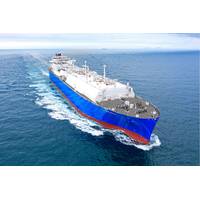
NYK signed a multi-year time-charter contract with GAIL (India) Limited, India's largest natural gas company, for a liquefied natural gas (LNG) carrier. Grace Emilia, the vessel that will be chartered, is equipped with a WinGD-made dual-fuel slow-speed X-DF diesel engine, a unit that has superior fuel-consumption efficiency and can operate on marine gas oil or boil off gas stored in the cargo tank. The vessel also features a re-liquefaction system that can use re-liquefied excess boil-off gas and return it to the cargo tank.The cargo tank has a 174,000 cu.
BIMCO: 2020 and the Collapse of Bunker Fuel Markets
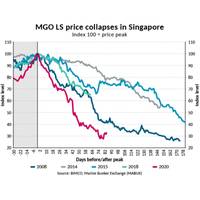
The sulfur regulation from the International Maritime Organization (IMO) that came into force on 1 January 2020 took the center stage in the shipping industry at outset of the new decade. Four months on, the spotlights have turned to the coronavirus and the OPEC+ oil price war.The outlook for global economic growth remains bleak as the world is faced with the largest recession since the Great Depression in the 1930s.Commodity prices have declined across the board and most recently, the West Texas Intermediate (WTI) reference oil future drew headlines as it crashed into negative territory at $-37.63 per barrel on 20 April 2020.
LNG and Shipping Decarbonisation Target
Though liquefied natural gas (LNG) could help the shipping industry to reach its decarbonization target, it could wreck the climate, finds a study.According to a research by the International Council on Clean Transportation (ICCT), switching vessels to the LNG fuel would only serve to worsen shipping’s climate impact due to previously underestimated leakage of the climate super-pollutant methane.More and more ships, including container ships and cruise ships, are being built to run on liquefied natural gas (LNG), which emits approximately 25% less carbon dioxide (CO2) than conventional marine fuels in providing the same amount of propulsion power.However…
Fuel Futures: Diesel Will Spike on IMO2020
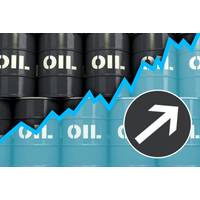
New marine fuel rules to boost diesel prices for at least a year -analystsGlobal prices for diesel and marine fuels should rise by October ahead of a January switchover to new, very low-sulfur marine fuels, and remain higher for at least a year as refiners shift production to make more of the new fuels, analysts said.Marine fuels containing no more than 0.5% sulfur by weight, down from the 3.5% currently used, to power ocean-going vessels will be required for ships without exhaust scrubbers on Jan. 1, under the International Maritime Organization (IMO) 2020 standard.In addition to the 0.5%-sulfur fuel…
IMO 2020: Exxon Mobil Projects 25% Decline in High-Sulfur Fuels
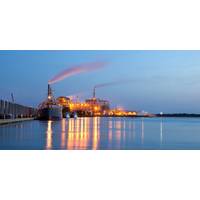
Exxon Mobil Corp expects high-sulfur fuel oil demand to fall 25 percent by 2025, as a new set of emission regulations from the International Maritime Organization capping sulfur content in shipping fuel at 0.5% kicks in in 2020, a top-level official at the U.S. oil and gas company said on Monday.The International Energy Agency has forecast high-sulfur fuel oil demand to fall 60 percent next year, while marine gas oil demand to more than double.Exxon's forecast comes as its refining business is struggling to find enough heavy crude to make fuel oil and other distillates, in the face of U.S.
Høglund to Supply FGSS for Hurtigruten
Høglund, the marine solutions and system integration company, has been awarded a contract to deliver biogas-ready fuel-gas supply systems (FGSS) for six Hurtigruten passenger ship retrofits.Høglund will work together with HB Hunte Engineering to design and engineer fully customized tank and FGSS solutions for each of the six vessels, optimized to run on both liquefied natural gas (LNG) and liquefied biogas (LBG), according to a press release.Hurtigruten will use Høglund and HB Hunte’s FGSS solutions in tandem with large battery packs onboard its vessels…
'World's First' Zero Emission Marine Biofuel Test Successful
Netherlands-based supplier of sustainable low carbon marine fuels GoodFuels Marine in conjunction with bulker and tanker owner and operator NORDEN A/S, has successfully completed trials of the world’s first zero emission, ‘drop in’ Heavy Fuel Oil (HFO)-equivalent marine biofuel – almost entirely reducing all carbon and sulphur emissions.A press release from the pioneer in sustainable marine fuels said that the culmination of three years extensive research and development with partners including Royal Dutch Boskalis and technology group Wärtsilä…
Enterprise Adds Vessel Fueling Capabilities at Houston
Enterprise Products Partners, as of June 1, 2018, is the exclusive provider of residual marine fuel (RMG 380) and marine gas oil (MGO) at its Enterprise Hydrocarbons Terminal (EHT) on the Houston Ship Channel. RMG 380 and MGO are the primary transportation fuels used by deep-draft vessels that dock at the EHT facility. “Being able to fuel ships as they load and offload product at our EHT marine terminal significantly streamlines the process, saving our customers time and money by not having to stop at a third party facility,” said A.J. “Jim” Teague, chief executive officer of Enterprise’s general partner.
NorSea Opens New MGO Facility in Peterhead
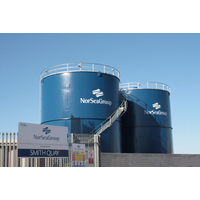
NorSea Group UK (Ltd) has completed Phase I of its multi-million dollar investment at its Shore Base within Peterhead Port with the opening of a new custom-built Marine Gas Oil (MGO) facility on Smith Quay. Two MGO tanks, which hold a combined total of 3000 cu. m. of fuel, are now operational. This represents an expansion in the range of services currently provided directly to clients by NorSea Group at Peterhead as project support and supply vessels can now be fuelled directly at the quay. Walter Robertson, Managing Director of NorSea Group, said: “This investment delivers a much needed fuelling option for vessels supporting offshore activities.
First LNG-fueled Pure Car/Truck Carrier Named
United European Car Carriers (UECC), owned equally by NYK and Wallenius Lines, held a naming ceremony on November 21 at the Port of Zeebrugge, Belgium, for Auto Eco, the world’s first LNG-fueled pure car and truck carrier (PCTC). Auto Eco had been delivered to UECC on September 29. The ceremony was attended by Geert Bourgeois, minister-president of the government of Flanders; Claire Tillekaerts, CEO of Flanders Investment and Trade; Masafumi Ishii, Japan’s ambassador to Belgium; Takao Kusakari, NYK senior advisor; and Koichi Chikaraishi, NYK senior managing corporate officer; among others.
GBFL, REV LNG, REV LNG Marine Join Forces for Bunkering in North America
GAC Bunker Fuels (GBFL), the GAC Group’s bunker trading and brokerage arm, has entered a strategic partnership with REV LNG and REV LNG Marine to deliver LNG bunkering services to ship owners and operators trading in North America. The alliance with the leading full-service LNG supplier and its marine arm REV LNG Marine offers a complete LNG supply chain solution in North American ports, in response to growing demand for LNG as a marine fuel. LNG provides a viable alternative to low-sulphur marine gas oil for vessels sailing in the current North American ECA (Emissions Control Area), enabling them to reduce emissions well below the mandatory 0.1%.
MPA Revokes Bunker Supplier Licences of AC Oil
The Maritime and Port Authority of Singapore (MPA) has revoked the bunker supplier and bunker craft operator licences of AC Oil Pte Ltd with effect from 29 July 2016. AC Oil Pte Ltd will no longer be allowed to operate as a bunker supplier or bunker craft operator in the Port of Singapore. As part of MPA’s on-going regulatory efforts to ensure the safety, reliability and quality of bunker supplies in Singapore, checks were conducted on AC Oil Pte Ltd in May and June 2016. MPA’s investigations into the company revealed discrepancies and wrongful declarations in the records kept on board their bunker tankers.
Statoil Contracts for Asco
Statoil (U.K.) Limited has on behalf of the Mariner co-venturers awarded the contracts for supply base and warehousing services for the Mariner field to Asco UK Limited. Asco is an international oilfield support services company, headquartered in Aberdeen. The supply base and warehousing facility for Mariner will be operated by Asco from Peterhead, north of Aberdeen. The scopes awarded encompass the provision of supply base services, including personnel, local transportation, marine gas oil, quayside services and a nearby warehousing facility.
Bunker Throughput up in Rotterdam Port
Bunkering rose again for the first time since 2011 in Rotterdam, the biggest bunker port of Europe: 10.6 million tonnes compared to 10.4 in 2013. The whole of the increase is accounted for by marine gas oil and diesel; sales rose from 500,000 to almost 700,000 tonnes. Sales of fuel oil stabilised – after falling for years – at 9.8 million tonnes. In addition, 100,000 tonnes of lubricant were sold. Sales of marine gas oil and diesel have risen due to the more stringent sulphur requirements in the Emission Control Areas (ECAs): North Sea, Baltic Sea and the United States coasts. As of 1 January 2015, sulphur emissions in the ECAs may not exceed 0.1%.
Yara Marine to Deliver 6 Scrubbers for LPG Carriers
Yara Marine Technologies (former Green Tech Marine) – a world leading scrubber supplier – has won a contract to deliver 6 exhaust gas cleaning systems (“scrubbers”) to an undisclosed ship-owner in 2015. The vessels are currently under construction at Hyundai Mipo Dockyard in Korea, and will be supplied to the owner in 2016. The vessels will be trading mainly in the North European ECAs (North Sea and Baltics). By using the Green Tech Marine® scrubbers, ship owners can continue to operate on heavy fuel oil instead of more costly marine gas oil, still complying with the strict IMO requirements regarding sulphur emission.
Cost to Fuel Ships Falls
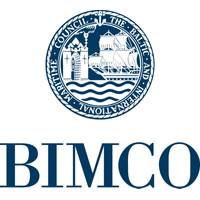
For a ship that burns 24 tonnes of fuel per day while steaming, fuel costs are reduced by as much as $1 million a year if current price level stay put. Assuming a difference from the average of first half of 2014 at $578 for 380 cSt, High Sulphur Fuel Oil (HSFO) in Rotterdam, to a new level of $412, and a sailing time of 70%. On an industry-wide scale, the drop have reduced the entire international shipping industry’s daily bunker cost by $117 million per day. Assuming an annual market for bunker fuels 257 million tons, bought at spot price and a drop in prices by $166 per mt on HSFO.
Achinsk Refinery Resumes Production
Achinsk Refinery started shipping high octane gasoline and diesel fuel of the quality no lower than environmental class IV of the Technical Regulations. The Company, therefore, resumed output of commercial motor fuels after the accident that happened on 15 June, 2014. Achinsk refinery restarted output of high-octane diesel in accordance with the repair-and-renewal work schedule, following the re-launching of catalytic processes - gasoline reforming and isomerization, and de-waxing and hydrotreatment of diesel fuel. Full industrial safety expert review of technical equipment…
DNV GL Forms Americas LNG Solutions Group

To meet the rapidly growing demand for a wide variety of LNG related services, DNV GL has established a group of LNG experts in North America. In addition to deep LNG expertise, the Houston-based “LNG Solutions Group - Americas” is also experienced in all business, risk and regulatory matters specific to the North American market. With the increasingly strict regulation of sulphur emissions in force next year and the already tightened Emission Control Area regulation for the U.S., ship owners are likely to feel more pain by the rising fuel prices.
New Success for Europe in Cleaner Inland Navigation
The increasing use of LNG (Liquefied Natural Gas) as a fuel was given another boost with today’s commissioning of a new type of inland navigation vessel: Sirocco. Owned by Chemgas Barging, this conventional gas tanker is equipped with a main engine capable of running on marine gas oil as well as on the clean LNG. What makes this dual-fuel system unique is that it is positioned below decks in the cargo area, which improves vessel safety. This deployment is part of the ‘LNG Masterplan Rhine-Main-Danube’ project which is being realised…
